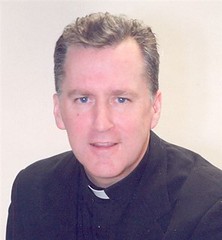This is the day on which Christ was clearly revealed to the world, the day on which he consecrated the sacrament of baptism by receiving it in person, and also the day, according to the belief of the faithful, on which he changed water into wine at the wedding feast. On this day too water became wine in a spiritual sense, the letter of the law ceased to apply, and the grace of the Gospel shone out through Christ.
Christ was baptized, and the world was renewed. At his baptism the world put off the old man and put on the new. The earth cast off the first man who is earthly by nature and put on the second man who comes from heaven. When Christ was baptized the mystery of holy baptism was consecrated by the presence of the whole Trinity. The Father’s voice thundered: This is my beloved Son in whom I am well pleased. The Holy Spirit appeared in the form of a dove. But it was the divine will that only the Son should be baptized by blessed John. Although the whole Trinity was at work in the incarnation of the Word and the mystery of his baptism, the Son alone was baptized by John, just as he alone was born of the Virgin. With the exception of sin, he experienced all the sufferings of the humanity he had assumed, yet in his divinity he remained untouched by suffering.
Today is festive enough in its own right, but it stands out all the more clearly because of its proximity to Christmas. When God is worshiped in the Child, the honor of the virgin birth is revered. When gifts are brought to the God-man, the dignity of the divine motherhood is exalted. When Mary is found with her child, Christ’s true manhood is proclaimed, together with the inviolate chastity of the Mother of God. All this is contained in the evangelist’s statement: And entering the house they found the child with Mary his mother, and bowing down they worshiped him. Then, opening their treasurers, they offered him gifts: gold, frankincense, and myrrh.
The gifts brought by the wise men reveal hidden mysteries concerning Christ. To offer gold is to proclaim his kingship, to offer incense is to adore his godhead, and to offer myrrh is to acknowledge is mortality. We too must have faith in Christ’s assumption of our mortal nature. Then we shall realize that our two-fold death has been abrogated by the death he died once for all. You will find a description in Isaiah of how Christ appeared as a mortal man and freed us from our death. It is written: He was led like a lamb to the slaughter.
The necessity of faith in the kingship of Christ can be demonstrated on divine authority, since he says of himself in one of the psalms: I have been appointed king by him, that is, by God the father. And speaking as Wisdom personified he claims to be the King of kings, saying: It is through me that kings reign and princes pronounce judgment.
As to Christ’s divinity, the whole world created by him testifies that he is the Lord. He himself says in the gospel: All power has been given me in heaven and on earth, and the blessed evangelist declares: All things were made through him, and without him nothing came into being. If we know, then, that everything was created through him and subsists in him, it follows that all creation must have been aware of his coming.
Thursday, January 05, 2006
Subscribe to:
Post Comments (Atom)

1 comment:
Who is St. Odilo?
Post a Comment